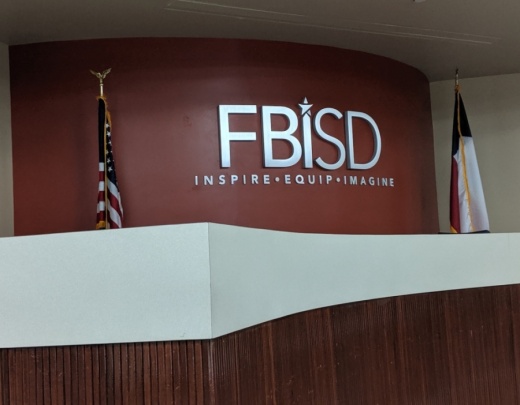Fort Bend ISD has spent $1.6 million in response to the coronavirus pandemic, according to a presentation by Chief Financial Officer Bryan Guinn.
Guinn provided the board with an update to the 2019-20 school budget at the April 13 board of trustees meeting.
Guinn said new budget projections estimate the district will end the year with a $1.42 million surplus. In all, Guinn said district revenue totals are expected to be $8 million higher than projected, and expenditures will be $2.4 million less than originally budgeted.
Based on these preliminary estimates, Guinn said the district will have an ending fund balance of $239.5 million, which amounts to a 29% operating reserve.
“I'm glad that we're good for our budget this year, the 2019-20 budget, that shows that although we have built our budget around serving the needs of our students first, we still have run a tight financial ship and are ending up in the black,” Trustee Jim Rice said. “I'm really, really proud of that fact and all the work that [district staff has] done.”
While Guinn said there have been additional expenses associated with the coronavirus, these expenses may be offset by savings on items such as travel and training, office supplies and utilities. He also said sufficient reserves in the district’s accounts will help cover these costs.
Additionally, the Coronavirus Aid, Relief and Economic Security Act, which was signed into law by President Donald Trump at the end of March, includes $13.5 billion for education, Guinn said. Under this new law, Guinn said some coronavirus-related expenses will be reimbursed, but the rules surrounding the law are still being made, and the Texas Education Agency has not yet clarified how this funding may affect the district.
Guinn also said he does not expect there to to be a negative effect on regular state funding. The TEA will use attendance averages from the first four weeks as well as historical changes in attendance during the last part of the year to estimate average daily attendance, which determines state funding, Guinn said.
“So to briefly recap ... at this point, we do not anticipate a negative impact on state aid in 19-20, as I mentioned,” Guinn said. “We expect some level of reimbursement from the federal government on COVID-19-related expenditures, but we're uncertain of its timing. And, we have sufficient fund balance to offset the costs that we're currently incurring in 19-20.”
Guinn said the board of trustees will consider property tax rates for the 2020-21 school year in May and that next year’s budget will be presented for board consideration in June.





